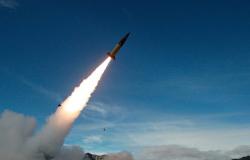AGI – A single day, a single hearing, a single verdict for a decision already written and formally taken in just a quarter of an hour: death sentence. It was Benito Mussolini himself who wanted the trial of the admirals of the Royal Navy in 1944, to unload on them the burden of the defeat of Italy and the regime in the Second World War, and the shame of betrayal in the disaster consecrated by the unconditional surrender . The Social Republic, the creature in which fascism had been reincarnated after its resurrection under the protection of German bayonets, sought revenge. And he found it by shooting the admirals who had opened fire in the Aegean against the Germans after 8 September 1943, and those who had not done so against the Allies before the armistice.
Mussolini’s revenge
Four admirals remained in the net after the collapse of the armed forces, but only two ended up in the dock before the Court of Assizes of Parma: Inigo Campioni, governor of the Dodecanese and commander of the Italian forces during the battle of Rhodes, and Luigi Mascherpa, at the head of the Lero garrison and of the fighting troops, who had fallen into the hands of the Germans who had handed them over to the Duce. Gino Pavesi, commander of the Pantelleria garrison who had surrendered on 11 June 1943, and Priamo Leonardi, commander of the military maritime station of Augusta-Syracuse, the most armed in Sicily in July 1943, were prisoners of the Allies and were therefore judged in absentia, still escaping the fate destined for them by Mussolini. The four were accused of high treason against the State, a legally inconsistent accusation: the State in 1943 was the Kingdom of Italy to which they had sworn an oath, certainly not the RSI which, moreover, did not exist at the time and was not recognized by any country. except the Reich and its allies and satellites; the senior officers had in fact complied with the orders of the legitimate Government.
Against logic and against law
That of Parma was a political trial wrapped in a legal simulacrum that offended law, history and logic. Admirals Pellegrino Matteucci and Franco Zannoni had already been judged on 12 May, acquitted because once they learned of the armistice they had done nothing at all and had therefore not opposed the Germans. Campioni and Mascherpa had instead fought and led the military operations. They had to be the scapegoats for the regime’s wrongdoings, and therefore pay with their lives for their responsibilities due to military honor and the ineptitude and sins of others.
A pure formality
The trial opens at 9am on May 22nd and the preliminary investigation phase is a pure and sloppy formality. The investigating judge Vincenzo Cersosimo flatly fulfills Mussolini’s wishes for a death sentence. The defense lawyers Paolo Toffanin (Mascherpa) and Lodovico Bazini (Campioni) are listened to distractedly when they demonstrate the absurdity and illogicality of that proceeding and the correctness of the behavior of their clients, who are not even too covertly intimidated by the specter of an indictment for apology for crime. Of the witnesses in favor, there were ten called by the defense, only three were presented, but it was not enough to obtain a postponement. There is no audience in the courtroom for show trials, unlike what happened on 8-10 January 1944 in Verona in the trial of the “traitors” on 25 July which should have been and had been exemplary: this time only men can enter, subject to identification and registration, not women or even relatives. The interrogations of the defendants are for the honor of signing, because the contents of the depositions are of no interest to the judges at all. Campioni and Mascherpa must answer for having obeyed Marshal Pietro Badoglio’s “criminal” orders of surrender and acts of war against the German comrades. The public prosecutor’s request was granted during the indictment: death penalty.
Sentence already written “for having harmed the interests” of RSI
Hearing adjourned at 7pm to allow the court to retire. The council chamber takes place in fifteen minutes, the time required for a signature on an already written sentence. Sentence to death by firing squad, established in the chest pursuant to art. 103 of the military penal code of war, “for having harmed the interests of the State”, not for the crime of other treason which involved it from behind, in the Italian way: sitting on a chair, with your back to the firing squad.
Faithful to the law of honor
On the night between 22 and 23 May, Admiral Campioni wrote a letter to the lawyer Gustavo Ghidini: «I thank you from the bottom of my heart for what you have done for me. I have involuntarily caused you emotions and spiritual worries that I certainly did not imagine when I begged you to take on my defense: don’t hold me against it. As I write to you, I am as serene as you have always seen me, because no one knows better than you that my conscience is pure and my honor intact.” Another letter, touching and farewell, is addressed to the mother: «Justice or, better, the condemnation of men does not affect me, because my conscience has absolutely nothing to reproach itself for, and this causes me to be so wonderfully calm and resigned to an unjust and undeserved end. Be sure of my name that you will never have to be ashamed, because never, I swear, have I failed to follow the laws of honor. I don’t want any resentment from those who condemned me in a time of such tragic events.”
Standing tall in front of the firing squad
At 2.30 am on May 24th, the chaplain of the Parma prison, Don Paolo De Vicentiis, informed the two condemned men that the request for mercy, as was obvious, had been rejected. The fascist authorities do not even allow him to wear the uniform of the Royal Navy, which according to them has been dishonored. At 5 o’clock the two admirals are sent to the shooting range in plain clothes. Mascherpa was also denied seeing his wife for the last time. At least they are spared the shame of handcuffs and their request to remain standing in front of the firing squad, which the soldiers face with dignity, is accepted. Then the fatal volley.
A post-war period with two faces
In 1947 Campioni and Mascherpa were awarded the gold medal for military valor in memory. The year before, thanks to the so-called Togliatti Amnesty (“Presidential decree of amnesty and pardon for common, political and military crimes that occurred during the period of Nazi-fascist occupation”, 22 June 1946), judge Cersosimo had returned to freedom. He had been arrested at the end of the war as judge of the Special Tribunal for the defense of the fascist state from 1931 to 1943 and of the Revolutionary Tribunal of Verona from 1943 to 1945, as well as investigating judge of the Verona Trial and the Admirals Trial in Parma. He certainly won’t be the only one to pass the gauntlet of history unscathed.





